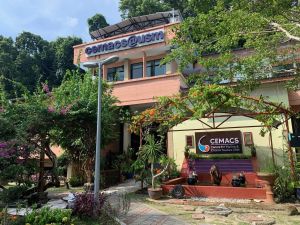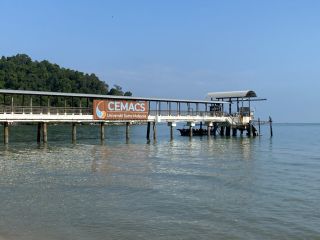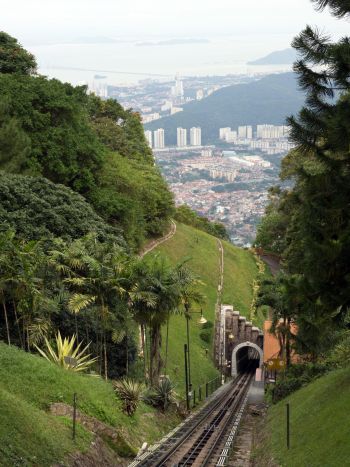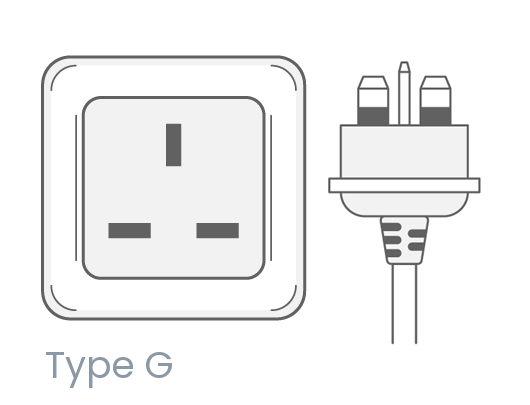Logistics & Location
About CEMACS
The Centre for Marine and Coastal Studies (CEMACS) was established in August 1991 to undertake research and postgraduate training in Marine Science and Coastal Ecosystems. It provides the institutional mechanism for mobilising and integrating the University’s considerable expertise and resources in marine science. The main objective of CEMACS is to enhance the capability of conducting integrated inter-and multi-disciplinary studies leading towards solving problems related to marine and coastal ecosystems.
CEMACS is located at Teluk Aling the northwest coast of Penang Island in the Penang National Park. The centre is served by a number of core academics working in collaboration with research associates identified from other teaching schools as well as from outside the University. The centre’s international associates include those from Canada, Australia, USA, UK, Japan, Cambodia, Indonesia, India, Iran, Australia, China, Singapore, Vietnam and Denmark. Associates of CEMACS are provided with the direct access to the Centre’s considerable research and training facilities. Presently, research and training conducted at the centre is focused on biodiversity and conservation of marine ecosystems, coastal forest ecosystems, mariculture and marine mammal ecology (dugong and dolphin).


About Penang Island

Penang, an island state off the northwest coast of Peninsular Malaysia, is a captivating destination known for its rich cultural heritage, natural beauty, and vibrant culinary scene. The island's multicultural identity, shaped by Malay, Chinese, Indian, and Peranakan influences, is evident in its festivals, architecture, and daily life. In George Town, a UNESCO World Heritage site, colonial-era buildings stand alongside colorful street art and bustling food markets. Penang’s Peranakan heritage, a unique blend of Chinese and Malay traditions, is celebrated through distinctive customs, attire, and crafts like batik and beadwork.
Penang is also home to the Penang Hill Biosphere Reserve, designated by UNESCO for its diverse ecosystems that span rainforests, marine areas, and Penang National Park. This reserve is a haven for rare wildlife, such as the Sunda colugo, and reflects a commitment to conservation, balancing protection efforts with sustainable tourism and community engagement. Together with its renowned street food—dishes like char kway teow, laksa, and nasi kandar—and beautiful beaches, Penang offers a unique blend of cultural richness and natural splendor.
Getting to CEMACS
The destination airport is Penang International Airport. For delegates flying into Kuala Lumpur, connecting flights from Kuala Lumpur International Airport (KLIA1 or KLIA2) to Penang International Airport are readily available.
KLIA1 handles most full-service international and domestic flights, while KLIA2 is the hub for low-cost carriers. Both terminals offer frequent domestic flights to Penang, typically taking about 1 hour. Delegates arriving via international flights at either terminal can easily transfer to a domestic flight to Penang. It is recommended to allow at least 2-3 hours for connecting flights between terminals.
Getting around in Penang:
You have several options of public transportations which are available in Penang.
Bus (Rapid Penang)
Taxi
E-hailing service - Grab (no Uber in Malaysia)
Meeting Point: Penang National Park, Teluk Bahang.
More detailed information will be provided to participants closer to the summer school.
Set your next destination to the Penang National Park, as CEMACS is situated within the national park.
We will then take a boat ride in to the centre (around 5-6 minutes journey), as the centre is only accessible via boat or by hiking trail.
The boat transport will be arranged, kindly follow the scheduled time which will be emailed to participants.
Attire
Please prepare appropriate attire which is comfortable and suitable for field work in a tropical summer weather. We advice shoes and sandals which are comfortable, no high heels or skirts as this may hinder your journey via boat and walking on the beach.
Entry Requirements into Malaysia
Information related to types of Visa, Visa payment, getting Visa information, Visa fees by country, get social tour pass and Visa requirement based on country. Kindly visit:
Things to Pack
Make sure to pack these must haves items:
1. Sports attire: for field work
2. Beach attire: long pants, t-shirt/rash guard, booties/any covered rubber shoe – you will get wet for some activities
3. Hat/cap
4. Shoes that can get wet (sea activity)
5. Towel
6. Toiletries (personal hygiene items: soap, shampoo, toothbrush, etc.)
7. Water bottle (can be refilled at water cooler)
8. Poncho/light raincoat
9. Personal medications
10. Comfortable clothing for non-outdoor activity slots (lab, lecture)
11. Slippers/sandals
12. Stationery (pen, pencil, notebook)
Optional items:
13. Mosquito repellent
14. Sunblock
15. Small torch
16. Snacks
17. Sleeping bag (if you wish to)
18. Sunglasses
19. Zip lock bags
Accommodation:
Participants will be housed in dormitories which is a sharing space and bunk bed styled facility. Bathrooms and lavatories are in a common area, with the sharing concept as well. These are very basic ammenities and expect to be close to nature as we are located within the national park.
Please bring along own toiletries and towel, as these aren't provided.
Click here for more info on dormitory
Plug point
Do remember to pack along your international power adapter to match the Malaysian plug point system.

